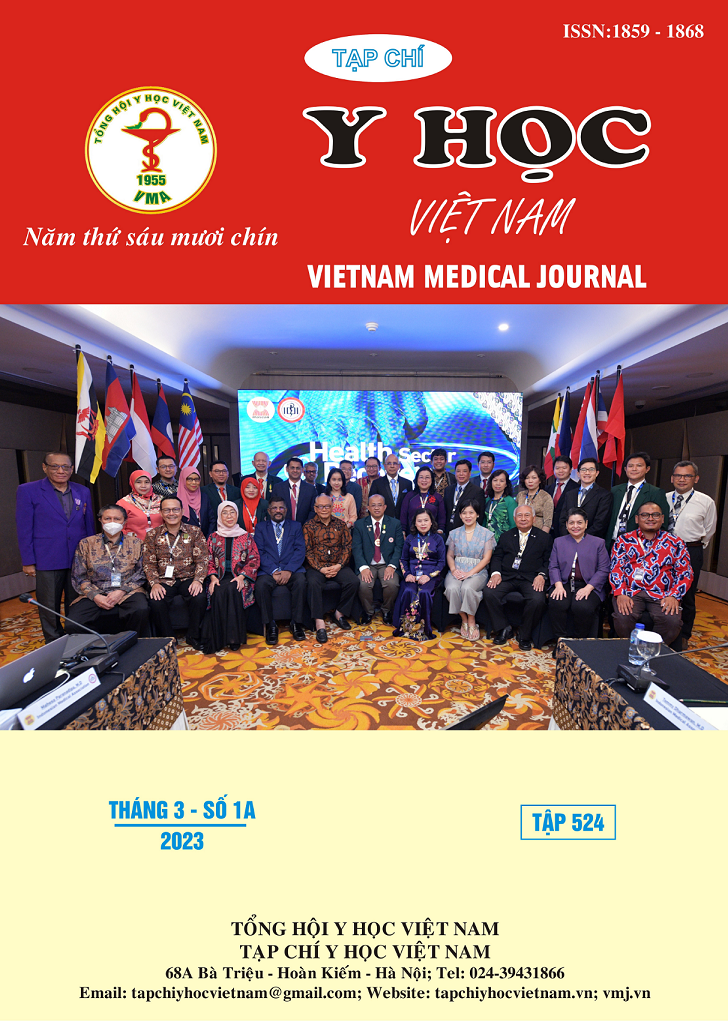THE WHO-5 WELL-BEING INDEX AND SOME FACTORS RELATED IN PATIENTS WITH COVID 19 IN HO CHI MINH CITY: A CROSS SECTIONAL STUDY
Main Article Content
Abstract
Background: WHO-5 is a widely used generic self-report tool to measure psychological well-being, specifically WHO-5 attempts to measure emotional well-being. Very little research has focused on the psychology of happiness. In particular, over the past time, Ho Chi Minh City is the largest epidemic center of the country. Instructing patients to take care of themselves and monitor their health will relieve psychological problems that need attention. Objectives: Describe the level of happiness according to WHO-5 and explore some related factors in patients with mild COVID-19 treated at home. Subjects and methods: Conducted a cross-sectional descriptive study in 685 patients using google form with WHO-5 well-being index in Ho Chi Minh city from 1/2022-3/2022. Results: The mean score of WHO-5 happiness index is 8± 6.04. After subgrouping the cutoff point of 13, it showed that 74.3% of the study subjects were unhappy. There is a statistically significant relationship between happiness level and gender, place of residence, education level, fear of spreading covid-19 to other members living together, feeling that people living in the same house or community The community was shunned and discriminated against because they were infected with covid-19 with p<0.05. Conclusion: Mild COVID patients treated at home lack high happiness. Therefore, it is necessary to receive support to reduce this rate, especially the problem of infecting relatives and the stigma of those around.
Article Details
Keywords
WHO-5, COVID-19, Ho Chi Minh city
References
2. Kusier AO, Folker AP. The Well-Being Index WHO-5: hedonistic foundation and practical limitations. 2020;46(3):333-9.
3. Simon J, Helter TM, White RG, van der Boor C, Łaszewska A. Impacts of the Covid-19 lockdown and relevant vulnerabilities on capability well-being, mental health and social support: an Austrian survey study. BMC Public Health. 2021;21(1):314.
4. Hoang TD, Colebunders R, Fodjo JNS, Nguyen NPT, Tran TD, Vo TV. Well-Being of Healthcare Workers and the General Public during the COVID-19 Pandemic in Vietnam: An Online Survey. International journal of environmental research and public health. 2021;18(9).
5. Topp CW, Østergaard SD, Søndergaard S, Bech P. The WHO-5 Well-Being Index: a systematic review of the literature. Psychotherapy and psychosomatics. 2015;84(3):167-76.
6. Small S, Blanc J. Mental Health During COVID-19: Tam Giao and Vietnam's Response. Frontiers in psychiatry. 2020;11:589618.
7. Riecher-Rössler A. Sex and gender differences in mental disorders. The lancet Psychiatry. 2017;4(1):8-9.
8. Song R, Han B, Song M, Wang L, Conlon CP, Dong T, et al. Clinical and epidemiological features of COVID-19 family clusters in Beijing, China. The Journal of infection. 2020;81(2):e26-e30.


